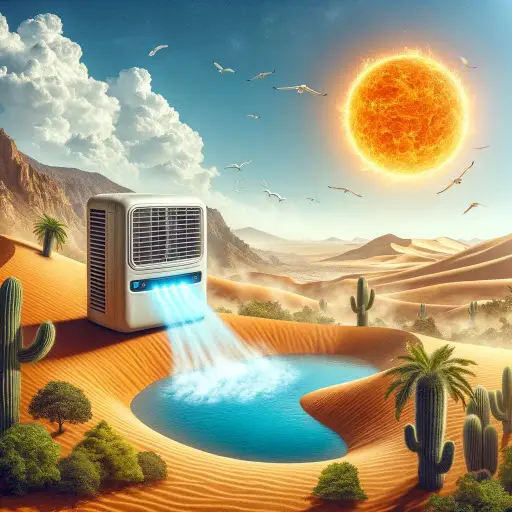The impact of climate change on summer temperatures in India is significant and increasingly becoming a concern for the country’s vast population. India, with its diverse climate zones, is witnessing a discernible increase in summer temperatures due to global climate change. This escalation not only affects the environment but also has profound implications on the health, livelihoods, and well-being of millions of Indians.
Increasing Temperatures and Heat waves
Climate change has led to a noticeable increase in the frequency and intensity of heat waves across India. These heat waves are characterized by prolonged periods of excessively high temperatures, which can have devastating impacts on human health, agriculture, water resources, and overall socio-economic development. Regions across India, especially in the north and central parts, are experiencing higher than average temperatures during the summer months, leading to a range of adverse effects.
Implications for Public Health
The rising temperatures pose significant health risks, particularly for vulnerable populations such as the elderly, children, and those with pre-existing health conditions. Heat-related illnesses, including heat stroke, dehydration, and exacerbation of cardiovascular and respiratory conditions, become more prevalent during intense heat waves. There is also an increased risk of waterborne diseases due to the scarcity of clean drinking water.
Importance of Air Coolers
In this context, the importance of air coolers in India cannot be overstated. Air coolers provide a cost-effective and energy-efficient means of alleviating the discomfort caused by the scorching summer heat. Air coolers use a simple evaporative cooling principle, which consumes less electricity and is suitable for the dry heat prevalent in many parts of India. As temperatures soar, air coolers emerge not just as tools for comfort but as essential devices for adapting to and mitigating the effects of global warming.
Relief from Heat
The primary importance of air coolers lies in their ability to provide immediate relief from the oppressive heat. Air coolers use a simple evaporative cooling technique that adds moisture to the air, which can be particularly beneficial in the dry regions of India. They significantly lower indoor temperatures, making living conditions bearable during extreme heat waves.
Public Health Benefits
Heat waves have severe health implications, and the cooling effect of air coolers can be a lifesaver, especially for vulnerable populations. By reducing indoor temperatures, air coolers help prevent heat-related illnesses such as heat strokes, dehydration, and exacerbations of chronic diseases. Access to affordable cooling is therefore not just a matter of comfort but a public health priority.
Cost-Effective and Energy-Efficient
Air coolers are much more affordable than air conditioners, both in terms of initial purchase cost and operational expenses. They consume significantly less electricity, making them a cost-effective solution for cooling, particularly in areas with limited power infrastructure or for households with limited financial resources. This energy efficiency also translates to a lower carbon footprint, aligning with the broader goals of environmental sustainability and climate change mitigation.

Environmental Sustainability
The low energy consumption of air coolers is a key factor in their environmental sustainability. In contrast to the high energy demand and greenhouse gas emissions associated with traditional air conditioning systems, air coolers offer a greener alternative. They support India’s energy efficiency goals and reduce the overall demand on the power grid, which is increasingly being powered by renewable sources.
Adaptability and Widespread Use
Air coolers are versatile and can be used in various settings, from residential to commercial spaces. Their portability and the fact that they do not require refrigerants or complex installations make them highly adaptable to different environments. This widespread applicability is crucial in a country like India, where the geography and climate vary significantly from one region to another.
Conclusion
The impact of climate change on summer temperatures in India highlights the critical need for adaptive strategies to cope with the increasing heat. Among these strategies, the deployment of air coolers stands out as a practical, economical, and environmentally friendly solution to provide relief from the heat for millions of Indians. As climate change continues to pose significant challenges, the importance of sustainable cooling solutions like air coolers will only grow, underscoring the need for innovative approaches to adapt to and mitigate the effects of global warming.
